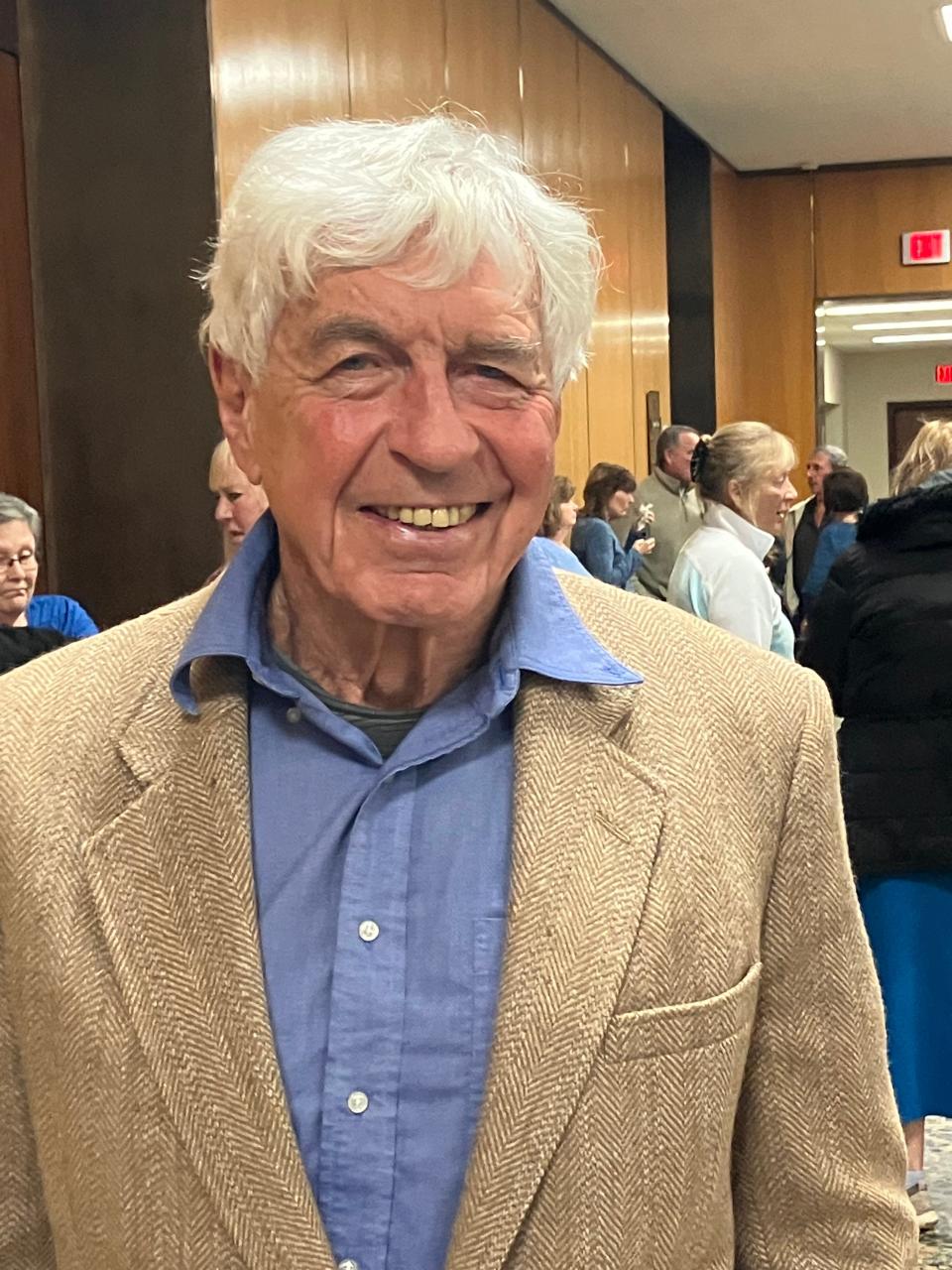Retired pathologist travels from South Africa to testify in landmark 'familial DNA' murder trial in Rochester
Nicholas Forbes, a retired Monroe County medical examiner, was here during the Rochester mob wars.
He was here during Arthur Shawcross' serial killing spree. He performed thousands of autopsies, then retired and returned to his South African home with his family.
On Friday, more than two decades after his retirement, Forbes returned to Rochester to testify in the murder trial of Timothy Williams, who, through the use of what is known as "familial DNA," now stands accused of the beating death of 14-year-old Wendy Jerome in 1984.
Forbes retired in 2002 and his presence on the stand was proof of just how old the once cold case is.
Testifying, the 77-year-old Forbes appeared just as poised and reliable as if he were on the stand in the 1980s. He often spoke directly to the jury and his ability to translate dense medical terms, along with his South African/English accent, softened slightly what occasionally were horrific descriptions of the injuries Wendy Jerome suffered.

Wendy's skull was severely fractured, Forbes said.
"What type of force is necessary to shatter the skull like that?" District Attorney Sandra Doorley asked in her questioning of Forbes.
"Huge force, " he answered. "Huge."
First trial in New York based on familial DNA sample arrest

In 2020 Police arrested Williams in Florida, where he was then living, after the state conducted a familial DNA search on evidence from the homicide. The state crime lab used the preserved DNA to see if it could develop a familial profile, which allows police to narrow a list of possible suspects.
That process led to Williams as a possible suspect from a genetic family tree. Police were able to surreptitiously collect a DNA sample from Williams in Florida, and the sample was allegedly a match. Testimony is expected next week about how police gathered the sample.
This is the first trial in New York in which a suspect was arrested based on familial DNA.
Williams lived in Rochester when Wendy was killed. He moved to Florida shortly after the homicide. Prosecutors said Wendy was raped, but the statute of limitations has passed for him to be charged with the crime.
The 14-year-old girl disappeared on Thanksgiving in 1984. She left a friend's house that evening but never reached home.
Wendy Jerome's homicide was the focus of a story in a 2012 Democrat and Chronicle series about unsolved cold cases. In that story, Marlene Jerome recalled how her daughter went to her friend's home on Alexis Street — a few blocks from the Jerome household — on Nov. 22, 1984.
"She left about 7 p.m. and she had a curfew, 8 p.m.," Jerome remembered. "About 8 p.m. I woke up and came running down the stairs: 'Where's Wendy?' I knew something was wrong."
Hours later her daughter's body was found in an alcove of Schools 33 and 11 near Webster Avenue.
Nicholas Forbes autopsy in familial DNA-connected case
In court on Friday, the jurors and the courtroom witnessed the grisly autopsy photos. Almost two dozen of Wendy's family and friends were attending the trial.
It was Forbes, who was well known nationally for his work as a forensics pathologist, who conducted the autopsy on Wendy Jerome. On Friday, he succinctly answered questions about his findings.
At the outset of his testimony, Forbes went through his curriculum vitae. Whereas some experts opt to deliver line-by-line recitations of multi-page resumes and highlight all of their published work, Forbes instead chose brevity.
A South African native, he graduated from medical school in his home country in 1972. He came to the United States and worked as an intern and pathology resident at the University of Rochester.
After a stint as a forensics pathologist in Oklahoma, he returned to Rochester in 1978 as chief medical examiner.
Forbes was originally brought to Rochester by the late John Edland, a doctor who determined that hostages and inmates were fatally shot by police during the violent retaking of the Attica prison on Sept. 13, 1971.
That truthful finding ran counter to initial claims of some state officials that inmates had killed the hostages. Edland was hounded and harassed by police and some residents because of his "cause of death" determination. He fell into a state of depression that required some institutionalization.
In a brief conversation after his testimony Friday, Forbes said of Edland, "He was a great pathologist."
Forbes said he hasn't testified in a decade. After his retirement he occasionally testified in some civil cases, he said.
Former prosecutor Thomas Brilbeck, who is now a law clerk in state Supreme Court, came to court Friday partly to watch Forbes testify. Brilbeck said afterward that Forbes appeared just as consummately professional as he had decades ago.
"He's a giant," Brilbeck said of Forbes' reputation.
— Gary Craig is a veteran reporter with the Democrat and Chronicle, covering courts and crime and more. You can reach Craig at gcraig@rocheste.gannett.com. He is the author of two books, including "Seven Million: A Cop, a Priest, a Soldier for the IRA, and the Still-Unsolved Rochester Brink's Heist."
This article originally appeared on Rochester Democrat and Chronicle: Nicholas Forbes testifies in familial DNA murder trial in Rochester NY

